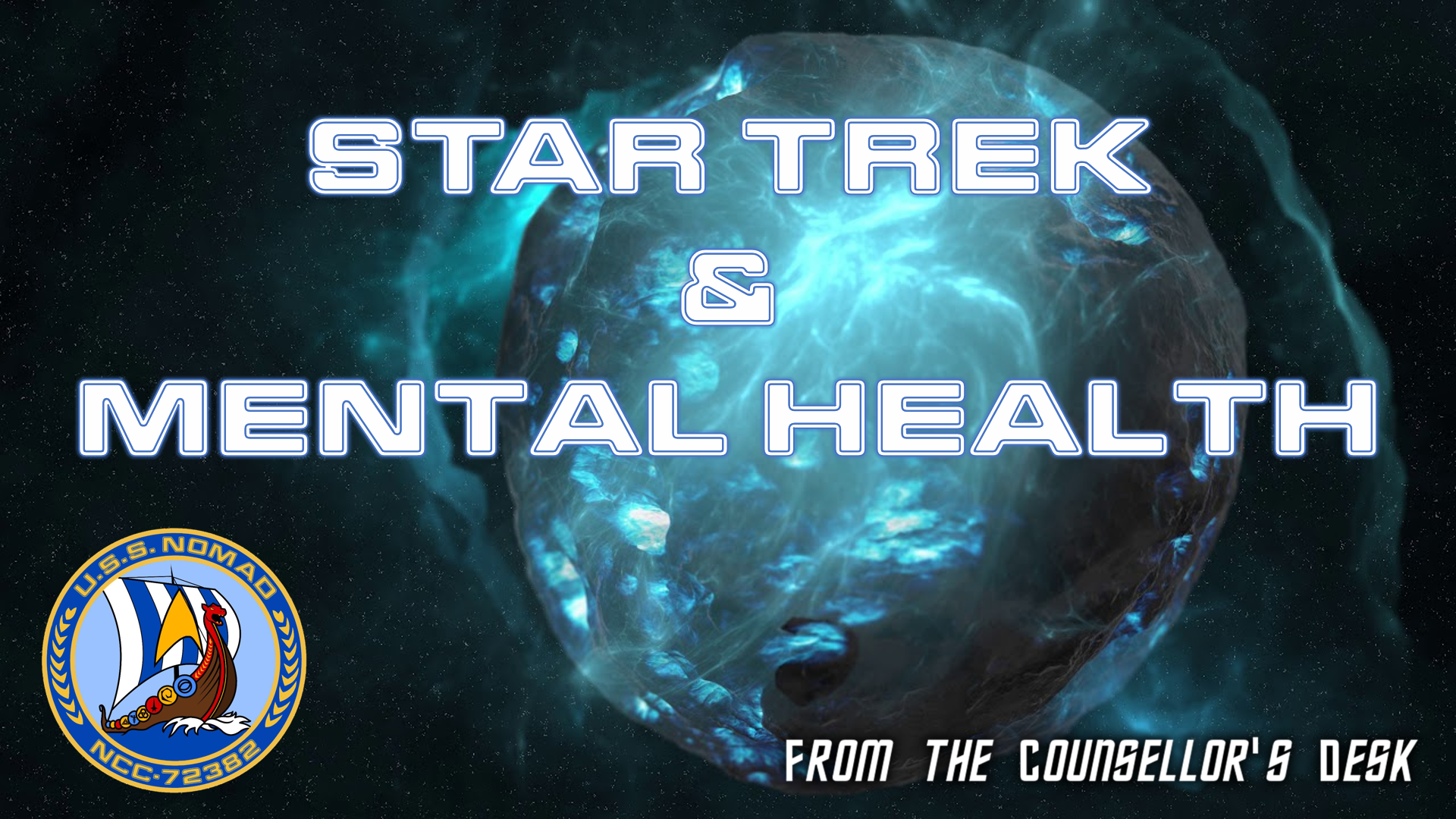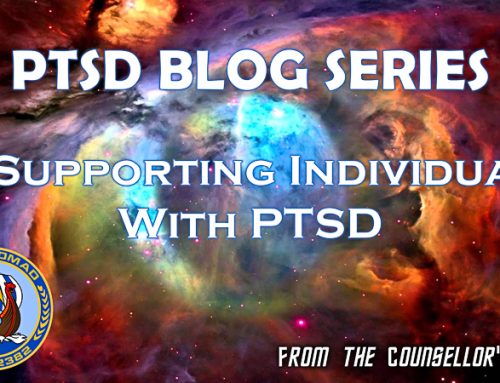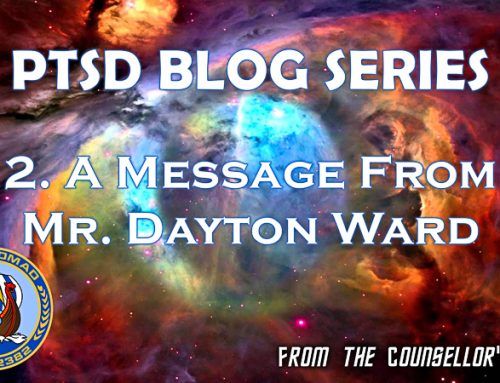Gene Roddenberry did not shy away from addressing issues which were uncomfortable or current. This tradition has continued on into present incarnations of the franchise as characters press further into the final frontier. It should come as no surprise, therefore, that mental health issues were woven into scripts long before it was mainstream.
Here then, are just a few examples:
The Original Series episode, “The Doomsday Machine”, featured Commodore Matt Decker losing his crew despite taking the action he believed would save them. He comes away with post traumatic stress (before it even had a name) and guilt as both survivor and inadvertent agent of the death of his entire crew.
The TNG episode “The Wounded” establishes that O’Brien served as tactical officer aboard the USS Rutledge during the Cardassian War and that he was emotionally scarred by the Cardassian’s massacre of hundreds of civilians on Setlik III.
DS9’s, Benjamin Sisko, copes with the loss of his wife at Wolf 359.
Jean-Luc Picard deals with his assimilation and the death of his brother and nephew.
Data strives to feel emotions, and to understand what it’s like to be human.
Perhaps the most pronounced case of mental health issues is found in the character, Lieutenant Reginald Barclay. Barclay, while possessing great technical skill and sincere enthusiasm, seems anxiety-ridden, socially awkward, and self-conscious. He also displays stuttering and dysfluent speech behaviors, especially when nervous or anxious, along with some secondary gestures, such as facial grimaces and small head tics, however on the holodeck many of these issues vanish and he acts confident. He has an obsessive interest in fantasy, which seems to serve as an escape from personal interactions, especially those where he is being mistreated by others. Barclay’s anxieties extend to idiosyncratic fears (such as fear of being transported) and hypochondriasis. The overcoming of his fears and social anxieties became a running plot point across many seasons in multiple Star Trek series.
Star Trek normalized having conversations which dealt with mental health issues and gave credence to seeking the services of a Counsellor. TNG went so far as to position a full-time Counsellor on the ship and included her as a member of the senior staff. Her advice was sought by the Captain and held weight in negotiations.
Here’s hoping that our future allows for such openness and caring – a future where Gene Roddenberry’s vision becomes our reality.


![MEDICAL EMERGENCY ON MINOS KORVA [Part 1]](https://ussrenaissance.ca/wp-content/uploads/2022/05/Medical-Supply-List-500x383.png)
![MEDICAL EMERGENCY ON MINOS KORVA [Mission Briefing]](https://ussrenaissance.ca/wp-content/uploads/2021/03/USS-Nomad-Medical-Log-500x383.jpg)

